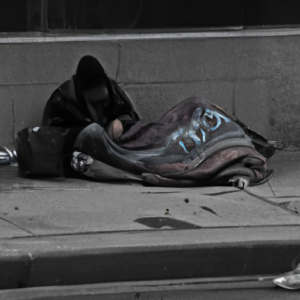Kroger Posts Net Loss following the Settlement of a $1.4 billion Opioid Case
In a recent development, Kroger Co., one of the largest American grocery chains posted a significant loss due to a $1.4 billion opioid class action settlement. We found a comprehensive report on this issue via MSN Money that provides an outlet for broader discussions and implications revolving around the ongoing opioid crisis.
Opioid Crisis in North America: A Brief Overview
The opioid crisis is a pressing issue that has veered the trajectory of numerous lives in a distressing direction. Demarcating the pervasion of illicit use and addiction to opioids, including prescription pain relievers, heroin, and synthetic opioids such as fentanyl, the crisis has engendered a ripple of ramifications across the societal and economic fabric of North America.
The Effect on the Homeless Population and Crime Rates
The opioid crisis has significantly exacerbated homelessness and crime rates. Many individuals battling opioid addiction lose their jobs, homes, and overall stability, leading to an increased homeless population. Moreover, the need to finance their addiction often pushes these individuals towards illicit activities, thus escalating crime rates.
To tackle these multi-fold issues, several strategies are being rolled out at the policy and grassroots level. These include lawsuits against pharmaceutical companies and stricter regulations related to opioid prescriptions.
Kroger’s Opioid Settlement: The Implication
The Kroger opioid class action settlement reflects the growing recognition of corporate responsibility in the opioid crisis. It stands as a significant moment in the fight against the opioid epidemic, setting a precedent for accountability for pharmaceutical providers and distributors. As society starts to acknowledge the multifaceted causation behind the crisis, the demands for legal and financial reparations have increased.
Let’s recap some of the key aspects of this issue:
- Kroger Co. has reported a net loss in Q4 due to charges of a $1.4 billion opioid class action settlement.
- This is indicative of the broader scope of responsibility in the opioid crisis, not only resting on the shoulders of individual users but also corporations.
- This settlement could potentially mark a watershed moment in holding corporations accountable for their role in the opioid epidemic.
- Greater accountability and regulation can, in turn, help combat the opioid crisis while addressing its resultant societal issues such as homelessness and crime.
- The opioid crisis necessitates a multi-pronged response, involving both policy and societal shifts, such as the increased use of naloxone to reverse an opioid overdose.
This situation articulates the challenging task of combating the opioid crisis. As we continue to grapple with its complex causes and far-reaching implications, it’s crucial to recognize our collective role in addressing this issue. From corporations to individuals, from policymakers to healthcare providers, everyone has a part to play in resolving the crisis.
Conclusion
While the current opioid crisis continues taking a massive toll on our communities, efforts like holding corporations accountable add momentum to the fight against this epidemic. The Kroger opioid class action settlement signifies a loop closure, making the battle against the opioid crisis a collective responsibility. This presages the need for a multi-pronged approach to rectify the societal impacts of the crisis, including rising homelessness and crime rates among vulnerable populations. In moving forward, every stride, however small, bolsters the journey toward a society free from the grips of opioids.
